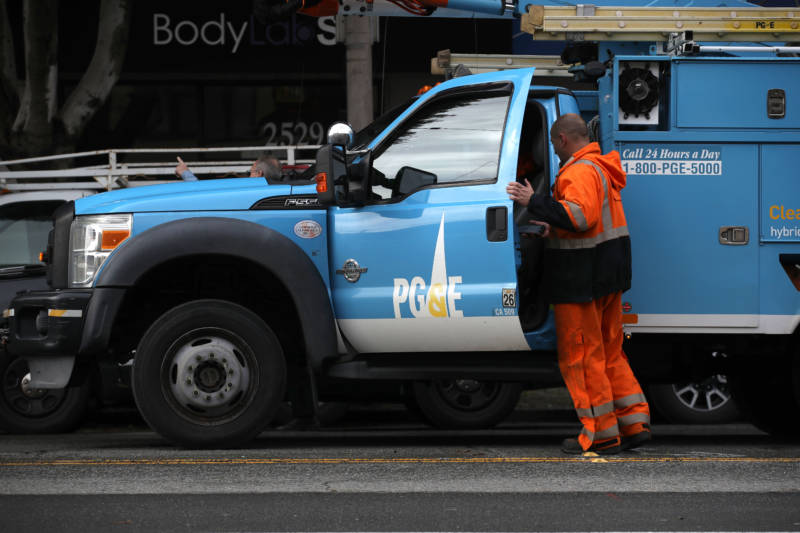“We’ve seen too many examples of the blatant misuse of ratepayer funds across the state,” said Democratic state Sen. Dave Min, who authored the bill that failed to pass on Monday. “I know that consumers are outraged by this.”
PG&E opposed the bill because it said it would take away the power of state regulators to examine utility companies’ costs and decide whether it is “just or reasonable″ for customers to pay for them.
Plus, PG&E lobbyist Brandon Ebeck said it’s appropriate for customers to pay for the company’s membership fees that go to various industry associations because they benefit customers. He noted that those groups coordinate emergency response and wildfire training. When the war in Ukraine started, the Edison Electric Institute — a national association representing investor-owned utilities — sought to find surplus equipment to be sent to Ukraine.
“There’s a lot of benefits to customers,” Ebeck said.
The bill was part of a larger backlash against California’s rising electricity cost. Power is expensive in California partly because of the work required to maintain and upgrade electrical equipment to reduce the risk of wildfires in a state with long, dry summers.
As rates have continued to climb, utilities like Pacific Gas & Electric, Southern California Edison and San Diego Gas & Electric have faced increasing scrutiny from consumer groups over how they spend the money they collect from customers.
Matt Vespa, senior attorney at the environmental advocacy group Earthjustice, said Monday’s vote was “incredibly disappointing.” He said the current rules for utilities “incentivizes them to see what they can get away with.”
As an example, Min and consumer groups noted PG&E spent up to $6 million in TV ads to tout its plan to bury power lines to reduce wildfire risk, which some consumer groups opposed because it increased customers’ bills.
The ads first aired in 2022 and featured CEO Patti Poppe in a company-branded hard hat, saying the company is “transforming your hometown utility from the ground up.”
The utility recorded the expenses for those ads as coming from a customer-funded account dedicated to reducing wildfire risk, as first reported by the Sacramento Bee. PG&E spokesperson Lynsey Paulo said the company has not yet asked regulators to review that expense. The California Public Utilities Commission will decide whether customer funds can pay for the ads.
Paulo noted state regulators allow utilities to use money from customers to pay for safety communications on television.
“Our customers have told us they want to know how we are investing to improve safety and reliability,” Paulo said. “We also use digital and email communications, but some customers do not have internet or email access, so we use methods including television spots to communicate with all of our customers.”
Some consumer groups say the ads have crossed the line.
“Only at PG&E would (Poppe’s) attempts at brand rehabilitation be considered a ‘safety message,’” said Mark Toney, executive director of the Utility Reform Network. “This blatant misuse of ratepayer funds is exactly why we need SB 938 and its clear rules and required disclosures for advertising costs.”
